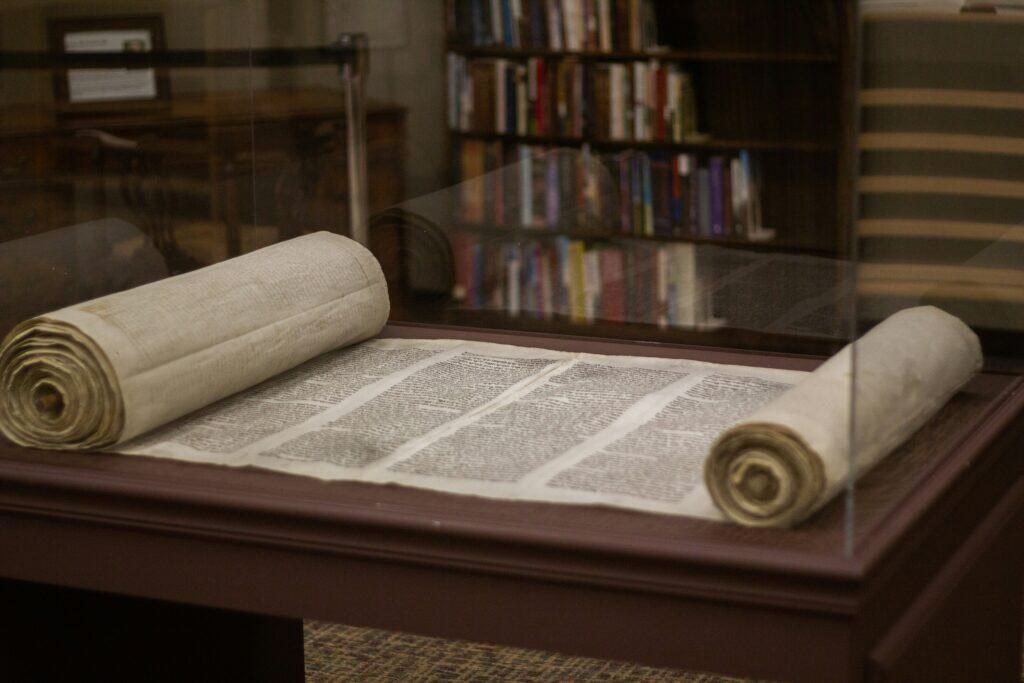As you’re aware, Julius Wellhausen lived a long time ago, and modern biblical scholars are by no means united in their opinion of his work. That doesn’t change the fact that his thought has had a huge impact on popular ideas about the reliability of Scripture. This subject is worth discussing for that reason alone.
The “Documentary Hypothesis” (JEDP Theory) has one glaring weakness – namely, it’s based on nothing but pure speculation. But aside from its speculative nature, is there anything “dangerous” or “threatening” about it? Does acceptance of the notion that multiple authors were involved in writing the Books of Moses lead to liberal theology or discredit the inspiration of the Bible? Or are your friends correct in maintaining that this is “no big deal”?
We take the view that it’s a very big deal indeed in that the JEDP Theory directly contradicts the claims of the Bible writers themselves. From Joshua onwards, all of the major authors and figures of the Old Testament assert that the Torah (Genesis-Deuteronomy) was given by Moses. See, for example, Joshua 1:7-8; Joshua 8:31-34; I Kings 2:3; 2 Kings 14:6; I Chronicles 22:13; II Chronicles 34:14; Ezra 3:2; Ezra 6:18; Nehemiah 1:7, 8; Daniel 9:11, 13; and Malachi 4:4. The apostle Paul, too, refers to these books as the writings of Moses (Romans 10:5; I Corinthians 9:9; II Corinthians 3:15), as does Jesus Himself and all the Gospel writers (Matthew 8:4; Mathew 19: 7-8; Mark 7:10; Mark 12:26; Luke 2:22; Luke 5:14; Luke 24:27, 44; John 1:45; John 5:45-47; John 8:5; John 9:29). The author of Hebrews (Hebrews 9:19) and John the Revelator (Revelation 15:3) share this perspective.
It is possible, of course, that Moses may have employed scribes to help him with the task of setting down the Law and the history of early Israel. It is also likely that a few words and passages may have been added by later editors. After all, Moses couldn’t have written about his own death. But apart from these exceptions, the biblical authors, along with Jewish teachers such as Philo and Josephus and the Fathers of the early church, all agree that the Torah 1) was written down in the time of Moses, 2) was written by Moses himself or by scribes under his direction, and 3) can be regarded as a reliable transmission of God’s Word communicated through Moses. The JEDP Theory denies all three points.
No big deal? On the contrary, we’d suggest that this is a question of the gravest importance. From an orthodox Christian perspective, we can’t even begin to talk about theology until we’ve established the truth of the Scriptures. If we can’t trust what the biblical authors tell us about the authorship of the Torah, we may not be able to believe anything they have to say. This is a crucial point, since the Bible is not merely a primary source of knowledge about God – it’s our one and only repository of “special revelation” concerning the existence and nature of the Deity and His will and plan for mankind and the rest of creation.
The Westminster Confession of Faith explains it this way: “Although the light of nature and the works of creation and providence do so far manifest the goodness, wisdom, and power of God as to leave men inexcusable, yet they are not sufficient to give that knowledge of God and of His will which is necessary unto salvation” (Chapter I, Section 1). The implication should be obvious: if we can’t trust the Bible, we have nothing whatsoever to say on the subject of knowing God. As Jesus Himself stated in the clearest possible terms, if we’re going to stake our lives on what the Bible has to say, we have to realize that every “jot and tittle” matters (Matthew 5:18).
Resources
If a title is currently unavailable through Focus on the Family, we encourage you to use another retailer.
The Faith: What Christians Believe, Why They Believe It, and Why It Matters
Christian Beliefs: Twenty Basics Every Christian Should Know
Referrals
Christian Research Institute
Articles
Christian Worldview












